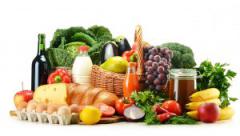
Interested In Making Your Hormone Replacement Therapy Blast Off?
Want To Learn How To Blowtorch The Fat Off Your Body?
Need To Slash Through The Fog Of Nutritional Confusion?
Then keep reading and uncover the secrets of weight-loss and proper nutrition.
Here's a loaded question. Suppose you have just bought a brand-new, expensive luxury car. As you're driving around, showing off your prized possession, the fuel light comes on.
By coincidence, you're at an intersection with two service stations.
One of them is known for selling a lesser quality gas and oil. In fact, there is even a sign up in front of the station: "Cheap gas! Cheap Oil!" The other sells high-quality fuel that is recommended for your car.
In the past, maybe you did cut corners. And perhaps that's the reason you needed a new car. Seriously, why would you even consider putting cheap, second-rate, low-quality gas and oil in your shiny, brand-new possession? It's a safe bet that you wouldn't think twice about paying a bit more for higher quality, right?
So why in the world would you cut corners on a far more precious possession? Remember, you can buy a new car.
But when it comes to your health, it's not as easy as going to the new body store. If you wouldn't try to save a few pennies on your new car, why try to save a few pennies on your body?
More and more people are becoming concerned about their food choices, and realize what they eat does make a difference, both in how they look and feel and in the quality and length of their lives.
At least, that's what they say. But just take a stroll around your local malls and stores for evidence of the seemingly ever-increasing obesity epidemic that continues to plague the U.S.
This is even though there has never been more information available concerning what we should eat, as well as what we should avoid. To put it bluntly, we're still not getting it. There are two main reasons for this.
First, convenience. More and more people are trying to do more and more in less and less time.
This results in increased consumption of fast foods, processed and canned foods, and whatever other swill saves time. Many people are unwittingly not even thinking about what they are shoveling into their bodies.
Second, confusion. Once folks decide to change their eating habits for the better, they are bombarded day and night by admonishments…low fat…low carbs…make sure you eat this…![]() don't eat that. It's enough to make anyone scream: "Help! What should I really be eating?"
don't eat that. It's enough to make anyone scream: "Help! What should I really be eating?"
No question about it. There has never been more confusion about what we should eat. The ever-increasing number of "food gurus" continues to add to the confusion factor with a maze of conflicting ideas.
Avoid carbs…low fat is the only safe way to eat…some fats are good…try vegetarian…some carbs are good…dairy is bad…and on and on.
What's worse, what was "in" yesterday is "out" today.
And what about the food industry? Are genetically modified foods safe? According to the industry, there's nothing to worry about.
Just like the additives in our foods that require a dictionary and a degree in chemistry to understand when reading the labels of ingredients.
What about your physician? With so much emphasis on surgery, the latest miracle prescription drugs, and other medical findings, it is easy for doctors to overlook the importance of correct nutrition.
Most doctors are not nearly as concerned about food as they are about other medical topics and procedures.
To be fair, staying abreast of new medical treatments, along with seeing dozens of patients each day, is a full-time job. As a consequence, many hard-pressed-for-time physicians overlook the healing powers of food.
Need some more convincing about the importance of food? Here are a few numbers to think about: according to Bottom Line's Daily Health News, a mere century ago, the odds of dying from heart disease were 1 in 24…now they have surged to 1 in 7. Cancer? A century ago, the chances of dying from this killer were 1 in 49…now they have jumped to 1 in 7.
One caveat: our longer lifespans do play a role in these numbers. But regardless, as hard as it is to believe, there appears to be a disturbing trend: we are going backward in the critical, life-and-death struggle against these terrible afflictions.
Faced with these numbers, it is impossible for anyone to ignore the role of nutrition in our health and well-being.
The result of all of the above concerns? The average American diet has meant that we are digging our graves with our knives, forks, and spoons.
So, what to do? Is there any way to cut through this fog of confusion and allow you to finally understand what is right, and what is not…in plain English?
Fortunately, the answer is a resounding "YES." A vast, vital part of the Conscious Evolution Lifestyle is you are what you eat. With that in mind, let's look at a few simple guidelines that you can put to use…not years from now, but now!
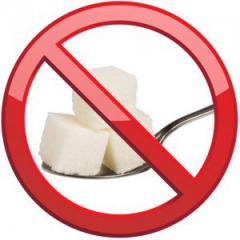
Be tough about simple sugars, bad carbs, bad fats, processed foods, and excess sodium. None of this stuff is found in nature. This goes double for the "super no-no's (candy bars, donuts, sodas, cakes, potato chips). Even world-class athletes will break down on rare occasions and have cheat days. Just keep those days to a bare minimum. Don't forget that sugar is a drug, and we can quickly become addicted to it. Stay away from fast-food chains, boxed or frozen dinners, canned soup, processed meats and cheeses, and ready-made sandwiches. Once again, be tough!
Load up on fresh fruits and vegetables. For all-around health, energy, and disease-fighting, the nutrition found in fresh fruits and vegetables can't be beaten. However, don't entirely rule out frozen produce, which may be even more nutritious than some fresh produce. Why? Because frozen fruits and vegetables are frozen at their peak ripeness when they are densely nutrient-loaded. While freezing produce may cause a slight loss of vitamins, the process protects what is left. Fresh food may be shipped for long distances, depending upon the season - and thus lose much of its nutritive value. The take-away? Buy your produce fresh when in season, and frozen in the off-season. Either way, you can't go wrong.
Don't forget the importance of protein: lean meats and other sources of protein are vital to your weight-control and strength building.
Don't neglect the power of juicing. According to ancient Chinese Taoist thought, by taking fruits and vegetables in the form of raw juice, the vitamins, minerals, and enzymes they contain go to work immediately upon entering the stomach, rather than hours later. These juices effectively neutralize excessive acidity in the stomach and zap the condition known as acidosis, which can be a severe and life-threatening condition. Fresh fruit and vegetable juice helps to keep our all-important pH level in balance. This level measures the ratio of acid to alkaline in our blood. Due to the typical American diet, consisting of excess meat, fat, sugar, alcohol, and starch, our bodies tend to be acidic. Juicing adds a layer of protection from this condition. But this does not mean stop eating your vegetables and fruits. They are needed for the fibrous bulk that keeps us healthy. Just add juicing your raw fruits and vegetables to the mix.
A few more things about the importance of juicing: if you haven't been eating correctly, your body may be loaded with toxic junk. Nothing, absolutely nothing, works faster than juicing when it comes to detoxifying your system. Most people say that it begins to go to work immediately! It
 makes fruits and vegetables taste great. Also, as an added benefit, juicing can slash your cravings for the wrong kinds of food. Finally, there is the convenience factor. Modern, high-speed juicers have eliminated the need for canned, frozen juices that are packed with artificial flavors and enough preservatives to last for years. No more of that. You can now "roll your own." Your body will thank you.
makes fruits and vegetables taste great. Also, as an added benefit, juicing can slash your cravings for the wrong kinds of food. Finally, there is the convenience factor. Modern, high-speed juicers have eliminated the need for canned, frozen juices that are packed with artificial flavors and enough preservatives to last for years. No more of that. You can now "roll your own." Your body will thank you.A quicker method of juicing is to use powders or buy the actual vegetable juice. Barley Green, Beet Juice Powder, and Raw Carrot Juice are highly recommended.
Stay adequately hydrated. This is so important that we have much more to say about it shortly. Stay tuned
Be aware of portion size. Did you know that each person in the United States wolfs down over 500 more calories in a day than they did a scant 40 years ago? It takes 2 hours of walking to burn those calories off - and most of us just do not need extra calories. A little trickery is helpful here. Trick your eyes by using smaller plates as a way of making your meal look bigger.
Minimize dairy. If you do consume dairy, look for eggs and milk from free-range chickens and grass-fed cows. As with humans, the food that animals consume is directly related to the quality of the eggs and milk they produce. Mass-produced, crowded, force-fed animals result in inferior dairy products. And if that weren't enough, never forget the effects of pasteurization. Pasteurization destroys milk's natural enzymes and alters its delicate proteins. Raw milk contains the active enzymes lactase and lipase, which permit raw milk to digest with little stress on the stomach. To put it bluntly, pasteurization takes the life out of milk…but since it helps the bottom line of the dairy industry, raw milk is illegal in many states, and therefore hard to come by. Seriously consider restricting milk unless you can obtain certified raw milk.
Instead of the typical "three squares," spread things out, and strive to eat 5 or 6 smaller meals each day. This will prevent hunger and allow your system to process the nutrients you take in far more efficiently.
Consume most of your calories early in the day (breakfast and lunch). Try to avoid a heavy dinner, and beware of eating in the evening…this can have a disruptive effect on your Human Growth Hormone release cycle.
Drink Green Tea. Green tea is widely known for many of its health benefits. But not many are aware that it has been shown to increase growth hormone. According to a study conducted by the Alternative Medicine Review, Epigallocatechin gallate (EGCG) - the active ingredient in green tea - has a boosting effect on growth hormone levels. Participants in the study were put
 on a calorie-restricted diet. Then, half of them were given a green tea product, and the other half received a placebo for 90 days. The results? The participants who received the green tea product for 90 days increased their growth hormone levels by more than 320%! They also pumped up their insulin-like growth factor (IGF-1) by 24%, compared to 20% and 15% rates for the placebo group. The green tea group also lost almost three times more weight than the control group. This didn't happen overnight. The results were not conclusive until near the end of the 90-day study; at 45 days, not much change was apparent. So be patient, and stick with it.
on a calorie-restricted diet. Then, half of them were given a green tea product, and the other half received a placebo for 90 days. The results? The participants who received the green tea product for 90 days increased their growth hormone levels by more than 320%! They also pumped up their insulin-like growth factor (IGF-1) by 24%, compared to 20% and 15% rates for the placebo group. The green tea group also lost almost three times more weight than the control group. This didn't happen overnight. The results were not conclusive until near the end of the 90-day study; at 45 days, not much change was apparent. So be patient, and stick with it.Consider organic produce, grass-fed beef, and free-range chicken. These may cost a bit more, but organic produce is not filled with dangerous pesticides. Grass-fed cattle and free-range chickens are not loaded with steroids and are allowed to develop in a far more natural manner than the typical over-the-counter meats. Also, after you consider the problems with our food supply, they are well worth the extra cost. Here's why: grass-fed beef is leaner, lower in omega-6 fats that have been linked to heart disease, higher in healthy omega-3 fats and linoleic acids…and it tastes better! Free-range chicken contains more protein than the meat coming from the assembly lines of "Big Agra," (the giant food companies). Therefore, make free-range chicken your first choice.
Apple Cider Vinegar and Honey. Vinegar, when combined with honey, can supply many different nutrients. As apple juice ferments, it produces a liquid laced with newly created enzymes, while retaining tiny particles of apples with their supply of vitamins and minerals. Often, the concentrated power of honey is included in vinegar tonics. The rich, natural sweetness of honey makes a great combination with vinegar's tartness. Together, these two nutritional powerhouses provide a combination of health-promoting nutrients. Mixing these two with water is an excellent way to start your day.
- Aloe Vera Juice. Aloe Vera juice can aid in digestion, eliminate toxins, strengthen the immune system, and speed up weight-loss. Just remember not to consume Aloe Vera that is not made for internal use.
Let's take a more in-depth look at these general guidelines:
Protein. Protein is essential since it gives us the amino acids we need to build muscles, repair injuries, and boost our immune system.
Protein is also found all through our bodies: organs, hair, skin, tissues, and cells. There are two kinds of protein: complete (lean beef, tuna, eggs, chicken breast, and milk) and incomplete (legumes, beans, seeds, and yogurt).
Strive for the complete kind as much as possible. If you are eating incomplete protein sources, look to combine different types for the most benefit.
For example, for grains and legumes, combine black beans and brown rice; pasta and peas;  whole wheat or rye bread and peanut butter; bean soup and whole-grain crackers; lentils and almonds.
whole wheat or rye bread and peanut butter; bean soup and whole-grain crackers; lentils and almonds.
These combinations will deliver sufficient amounts of the amino acids you need.
Protein plays a massive role in any exercise routine since it is an essential nutrient for muscle growth and increasing strength.
For every research scientist that states they can prove "on paper" that protein does not build muscle, there are dozens of massive powerlifters and bodybuilders that say it does.
Remember this simple formula: protein = more muscle growth and strength = more growth hormone release. How much protein is needed? As a rule, strive for 30% to 40% of your overall daily caloric intake.
Good Fats. In the latest dietary recommendations by many so-called "experts," fats have taken a beating. Pardon the pun, but this is NUTS! Fats are an essential part of a well-balanced diet. In fact, we can't survive without them.
Fats regulate our body temperature, keep our skin glowing, our hair shiny, and give us energy. The important thing here is that there are two kinds of fats: good and bad.
Examples of good fats are olive oil, almonds, walnuts, fish, and omega-3 rich fish oil. These are called unsaturated fats and are what we need to eat. Saturated fats are found in animal products (ice cream, whole milk, butter, and cheese). They have the potential to raise cholesterol and should be limited.
Trans Fats are the worst kinds of fats. They don't occur in nature, but when foods are fried, they can appear and raise our LDL cholesterol levels (the wrong type of cholesterol).
Try to minimize margarine, packaged, frozen, and fast foods, baked goodies like cookies and chips, and salad dressings. Look for the word hydrogenated in the label…then avoid it, since this means trans fat. In the real world, it is virtually impossible to eliminate trans fats entirely.
But do everything you can to cut them out.
Carbohydrates. In the "diet wars," proponents of a high-protein, high-fat, low-carbohydrate eating plan have made a good case for the harmful effects of excessive carbohydrate consumption.
But, as anyone who has tried this eating plan will testify to, eliminating almost all carbs works…for a while. But it is indeed rare to find someone who can stay on this plan for long.
What the no-carb crowd neglects to mention is this: as with fats, there are different kinds of carbs…simple and complex. The difference between the two is simple (again, pun intended) and easy to remember.
Simple Carbs. Examples of simple carbs are white bread, sodas, white rice, cakes, pies, syrups, and candy. Will these give you quick energy? Yes…but the energy jolt won't last.
The reason is that they are broken down quickly by the body, which causes your blood sugar to spike, making you "crash and burn." Worse, you will probably be hungry soon after eating them.
Complex Carbs. These are naturally occurring, and are found in fiber-loaded foods like fresh fruits and vegetables, oatmeal, wheat, brown rice, sweet potatoes, and legumes.
The body breaks down  complex carbs at a much slower rate than simple carbs.
complex carbs at a much slower rate than simple carbs.
As a result, glucose is released more slowly than with simple carbs. This means that complex carbs give us longer-lasting energy and do not spike our blood sugar levels.
They also fuel our nervous and muscular systems. Complex carbs will power us through the most grueling workouts, so please don't cut them out.
But when it comes to simple carbs, try to cut them way down. Better still, strive to cut them out completely.
Complex carbs like fresh fruits and vegetables are loaded with the life-preserving vitamins, minerals, and fibers that we need for balanced nutrition. The benefits of fresh fruits and vegetables are one of the few areas that virtually everyone agrees with.
There are many good varieties of each. Try them all, and go with what you enjoy. Load up on every brightly colored option available, since brightly colored fruits and vegetables are densely packed with antioxidants and other nutrients.
Blue, purple, orange, red, yellow, and green should give you a broad spectrum of products to have fun trying.
To further drive this point home, consider this. When the food researchers initially recommended that we lower our intake of fat and increase our consumption of carbs, they meant leafy vegetables, whole grains, fruits, and beans.
So, what did the average person do? They piled tons of fried potatoes, white rice, and pasta on their plates.
Their ever-expanding waistlines provided the answer to the question of "How did that work out for you?"
Whole grains are unrefined, provide us with usable energy, fight disease and deliver a wide array of vitamins, minerals, and fiber.
They also are filling, and therefore helpful in controlling our desire for the wrong kinds of foods. Don't forget oatmeal, whole-wheat or rye bread, brown rice, and popcorn.
Dairy. As mentioned earlier, dairy products should not be mindlessly consumed. On the other hand, dairy can play a beneficial role in our good health efforts.
Dairy foods are rich in calcium,  phosphorus, Vitamin D, potassium, protein, and magnesium. The key thing to remember is to look for organic dairy. If that's not possible, at least look for low-fat options in milk, cheese, cottage cheese, yogurt, and butter.
phosphorus, Vitamin D, potassium, protein, and magnesium. The key thing to remember is to look for organic dairy. If that's not possible, at least look for low-fat options in milk, cheese, cottage cheese, yogurt, and butter.
Fad Diets. There is one quick, simple and easy answer to the question of fad diets: AVOID THEM AT ALL COSTS! Many of the rigid diet recommendations and plans have contributed some useful ideas to the nutrition puzzle.
But the problems of the "my-way-or-the-highway" attitude of every fad diet approach highlights their weaknesses. For example, the low-carb folks are to be commended for correctly pointing out the dangers of simple carbs.
The low-fat people are to be similarly saluted for their emphasis on the dangers of fat.
However, they both throw out the baby with the bathwater. As mentioned above, complex carbs and unsaturated fats both play beneficial roles in our search for optimal health.
And some fad diets are outright dangerous to your health…as well as being too complicated and restrictive for the average person to follow.
By following the guidelines above, and applying common sense, you can harness the power of food in a safe, long-lasting manner.
The Incredible Power of Water
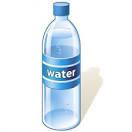
It has been a long-time and favorite dieting secret: Drinking more water helps you lose weight. But is it true?
The Secret to Losing Weight is not Complicated
Think about it: Drinking more water is not mission impossible. You don't need to have iron willpower, nor do you have to drastically cut back on calories or spend hours a day in vigorous, grueling exercise. So why aren't more people doing it?
Because Americans gorge themselves on way too many useless, empty calories in the form of sodas and other sugar-filled drinks.
Just the simple, straightforward act of keeping a bottle of water with you at all times will help you take in far less soda, juice, or energy drinks…or better still, cut them out completely.
This one simple change can result in drastically slicing your calorie intake - and shredding dozens of pounds of ugly, unwanted, disease-causing fat.
It's a fact that most people are dehydrated, which causes many health problems, including obesity.
Dehydration causes the body to retain excess water as a protective measure. This is a direct cause of weight gain. If that weren't bad enough, dehydration lowers the body's metabolism, causing even more weight gain.
More bad news: dehydration causes fatigue, which makes exercise even more challenging. Finally, many folks have lost their sense of thirst due to chronic dehydration, and mistake thirst for false hunger. This is still another factor in gaining weight.
Reaching for a bottle of water will significantly reduce hunger pangs.
Here are some other reasons to add water to your weight-loss program:
Initial weight loss is mainly due to loss of water. As mentioned above, be sure to drink an adequate amount of water to avoid dehydration and lose fat
A side effect of burning calories is the release of toxins. Water plays a vital role is flushing toxins out of your body
Dehydration causes blood to become thicker, which makes it less efficient in supplying oxygen to your muscles. This causes fatigue, making it harder to exercise and speed up fat loss
Staying properly hydrated will help to maintain muscle tone and make sure that your weight loss is fat, rather than muscle tissue.
- Most weight-loss diets are heavily loaded with fiber. Water will make sure your digestive system will easily handle the added fiber workload.
Science agrees: Drinking more water = weight loss
After years of every weight-loss idea, from low-fat to zero-carbs (and just about every diet in between) arguing over which approach is best, they all agreed on one thing: "drink more water." Now science has weighed in…and admits that water does help you lose weight.
Researchers in Germany report that water consumption increases the rate at which people burn calories.
Doctors at Berlin's Franz-Volhard Clinical Research Center tracked energy expenditures among seven men and seven women after drinking 17 ounces of water. The researchers found that the subjects' metabolic rates (the rate at which calories are burned) increased by 30% for both men and women.
Here is the exciting thing to remember from this study: the researchers estimated that throughout  a year, a person who increases his water consumption by 1.5 liters a day would burn an extra 17,400 calories, resulting in a weight loss of five pounds.
a year, a person who increases his water consumption by 1.5 liters a day would burn an extra 17,400 calories, resulting in a weight loss of five pounds.
They noted that up to 40% of the increase in calorie burning is caused by the body's attempt to heat the ingested water.
In another study conducted at Virginia Tech in Blacksburg, Virginia, researchers found that each overweight dieter who drank two large glasses of water before every meal lost approx. 2.26 KGs (5 pounds) of weight more than a group of obese dieters who didn't increase their water intake at all.
Water can even help you make healthy food choices.
Try this simple test: grab a bottle of soda, a can of fruit punch, then add a bottle of water. Now ask yourself this question: "Which one of these is the healthiest choice?"
The answer is in the "DUH" category: water wins, hands down - and for more reasons, than you might think. We know that water is free of sugar, calories, and the artificial garbage found in soda and fruit punch.
But water has another colossal advantage
Drinking water will encourage you to choose healthier foods…and eat more of them! Researchers at the University of Oregon and Michigan State University conducted two studies examining the role of drinks on food choices.
In the first study, subjects reported that they desired soda with salty, high-calorie foods like pizza or chips far more than with raw or cooked vegetables. They also said that water, while not always their first choice, went quite well with most foods.
The second study suggested that water doesn't only encourage you to choose healthier foods - 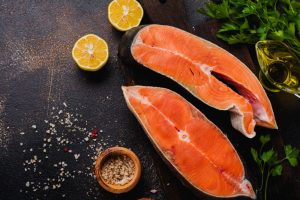 it actually may help you eat more of those healthy foods.
it actually may help you eat more of those healthy foods.
Children aged three to five in the experiment ate approximately one-third more red peppers or carrots when they were served water, as opposed to a sweetened drink like fruit punch.
Why these results make perfect sense
Think about this. Most of us form an idea of what foods and drinks "go together" the first time we eat a bag of chips with soda or eat fresh fruit with water.
These become habits that result in automatic choices, and for a good reason. Broccoli and soda seem far less appealing than broccoli and water.
Also, don't forget the role our taste buds play. Soda is sweet and powerful, enough to overwhelm our sense of smell and taste.
If we are going to eat something with it, it makes sense to choose another powerful, sugary, salty, or fatty food…foods that are savory and creamy and won't be overpowered by the soda.
But when you choose water, you can appreciate it…really appreciate the subtle sweetness of fresh fruit, the freshness of a piece of meat, and the raw wholesomeness of fresh vegetables. Certain foods and drinks make great combinations, and water works with all of them.
Let water help you kick the soda habit…forever
As you can imagine from what we have discussed, soda and other sweet drinks can wreak havoc with your health and weight-loss goals. Not only are they devoid of nutrients, but they cause us to crave junk foods.
But don't lose hope. In this case, these bad habits are not your fault - and the good news is this: they can be changed, easier than you could ever imagine, by merely substituting water for sweet drinks.
To sum it up, remember this: In addition to the bright, refreshing taste of water, and all of the other incredibly powerful, life-changing health benefits that water delivers (more energy, healthier organs, less joint pain, better digestion), we can add another reason to enjoy water: Healthier eating habits!
The All-important pH Balance
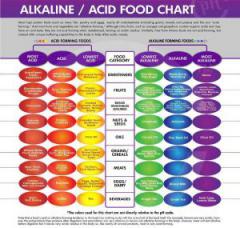
Hydrogen is the measure of acidity or alkaline in the body, pH via a number between 0 and 14 measured through blood testing.
A pH of 7 is neutral, a pH below 7 is acidic, but between 7 and 14 is alkaline.
For optimum health, the body's blood chemistry needs to be slightly alkaline, with a pH level ideally between 7.38 and 7.42. When the pH level strays too far above or below this level, disease and illness are likely to follow.
It is possible to become too alkaline (known as alkalosis). However, due to the average American diet, a condition called acidosis (too much acid) is far more widespread.
Acidosis is a severe medical condition, with symptoms such as headache, confusion, coma, shortness of breath, increased heart rate, nausea, seizures, muscular weakness, and many more problems.
A normal stomach has an approximate ph measure of 4.0. Consuming high pH alkaline food causes the stomach pH to rise. When the stomach pH rises above 4.5, the stomach produces hydrochloric acid to try to raise the acidity. Here is the chemical formula of hydrochloric acid formation:
H20 + CO2 + NaCl = HCI =NaHCO3
Sodium chloride (salt) and Co2 (carbon dioxide) produce hydrochloric acid and sodium bicarbonate. The hydrochloric acid goes into the stomach, and then the sodium bicarbonate goes into the bloodstream.
When the blood becomes too acidic, sodium bicarbonate works to raise the blood pH level.
If we don't have enough sodium bicarbonates in our blood, we have trouble controlling too much acid, which can result in high blood pressure, kidney stones, premature aging, osteoporosis, and many other health problems.
 Since the standard American diet consists mainly of acidic foods (meat, dairy products, grains, and sweets) and because of toxins in the environment, most people have an acidic pH level.
Since the standard American diet consists mainly of acidic foods (meat, dairy products, grains, and sweets) and because of toxins in the environment, most people have an acidic pH level.
If the pH level in our blood drops too low, acidosis may result. The dangers of this condition were mentioned earlier.
Why is this important?
Because disease grows far more efficiently in an acidic environment and has much more difficulty thriving in an alkaline environment.
In an acidic environment, we are forcing our bodies to work much harder than they are designed to. This explains why disease can get a foothold to cause illness.
A slightly alkaline body is necessary for optimum health. Many diseases cannot survive in an alkaline environment.
No matter how hard you work out, and how much you watch your diet, you will never achieve optimum health until you have the proper acid/alkaline balance in your body.
Here are a few of the consequences of Acid-Alkaline Imbalance:
An acidic environment weakens the body's cellular structure. This results in making the entire system function less efficiently and speeds up the aging process
Acidosis reduces the body's supply of oxygen, which is the primary source of energy, leading to fatigue/tiredness.
Another side effect of acidosis is a result of the body being forced to use its alkaline mineral supplies to reduce acids in your fluids and tissues. Reduced mineral supplies can cause dry skin, brittle nails, sensitive gums, and thinning hair.
The brain requires roughly 20 percent of all the oxygen you breathe in. As acidosis lowers the body's oxygen levels, this can result in forgetfulness, poor concentration and a host of other adverse brain problems.
- As the heart needs oxygen, lack of it can lead to cardiovascular problems. Acidosis equals low oxygen
If you are suffering from any of these problems, there is a good chance that you are overly acidic. This is true for so many people…and sad because the solutions are readily available: stay appropriately hydrated and…
Choose The Right Foods
In addition to staying properly hydrated, be concerned with the alkaline and acid content of the food you eat. Here is a brief list of alkaline and acid foods:
Acid Forming Foods: Corn Tortillas…Sourdough Bread…White Bread…Ketchup…Mayonnaise…Mustard…Cheese…Eggs…Milk (pasteurized) Yoghurt…Beer…Coffee…Fruit juice…Liquor…Beef…Pork…Sardines (canned)…Tuna (canned)…Veal…Artificial sweeteners…Pickled vegetables…Soda
Alkaline Forming Foods: Alfalfa…Barley Grass…Cucumber…Kale…Avacado…Lima Beans…White (Navy) Beans…Spinach…Fresh Red Beets…Red Radish…Cabbage…Celery…Fresh Cut Green Beans…Garlic…Ginger…Oregano…Fresh Lettuce
This is a list to study and be aware of. It is nearly impossible to avoid all acidic foods, nor is it necessary. The key is balance. The goal is to add more alkaline foods and eat fewer acidic foods.
Putting It All Into Action: A Few Helpful Ideas

1. Write…and write some more. Write out a detailed food plan, and make it as precise as possible. This will bring the power of your subconscious mind into the equation, and increase your self-discipline many times over.
You may even want to take a day and write down everything you eat or drink in 24 hours …everything! Remember, it all adds up.
The milk, cream, and sugar you pour into your coffee or tea, the extra beer you have with dinner, and the late-night snack. You may be surprised.
Last, write down an affirmation before going to bed. This can be anything that will help you stay on your program. "I followed my nutrition plan today, and I will follow it tomorrow" is just an example. Personalize whatever phrases or motivational sayings that will work for you.
2. Don't Skip Breakfast. This gets the day going right and gives us the energy boost we need. Also, when it comes to our intake of calories, the earlier, the better.
3. Slow It Down. Scientists tell us that it takes about 20 minutes for the stomach to signal the brain that we are full. Eating slower will both allow us to eat less, and give our overworked stomachs some well-deserved help in digesting our food since we are taking the time to chew more thoroughly.
4. No Evening Eating. Why go to bed on a full stomach? Think about it. The food we eat at bedtime has a much slower rate of digestion and therefore, will turn to fat easier than what we ate earlier.
5. Learn More About Food Preparation. Steaming, juicing, blending, grilling, baked, roasted, stir-fried, saute: There are so many options for food preparation. Whoever said that eating healthy has to be drab, bland, and boring? It ain't true. Study recipes, and you'll see why.
6. Prepare a Shopping List. This will keep you focused, reduce impulse buying, and make it easier to make the right choices when temptation is staring directly at you.
7. Eat Only When You're Hungry. Learn from the family pet. You don't have to force anything down just because the clock strikes a certain hour. Listen to your body. It's that simple.
8. Forget About The Adage: "Clean Your Plate." This was good advice from mom when you were a growing child. But for most of us, that was a long time ago. When you feel full, just remember that there is no law against saving what's left for another time.
9. Read Labels. Anything that ends in "…ose" is probably sugar. A general rule here is that the 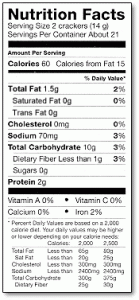 more ingredients, the worse the product is to eat. Also, the ingredients are listed in the amounts that they are in the product. For example, the first listed ingredient is in the product more than the last one. If sugar is listed first, beware.
more ingredients, the worse the product is to eat. Also, the ingredients are listed in the amounts that they are in the product. For example, the first listed ingredient is in the product more than the last one. If sugar is listed first, beware.
10. Listen To Your Body. This may be the most important rule to remember. If you feel guilty about eating something, that is telling you something. Conversely, if you have a hard time-consuming something that you know is healthy, then don't! There are many healthy alternatives. Learn them.
By following these guidelines, you will set the stage and create the perfect environment for Human Growth Hormone Replacement Therapy to blast off…and deliver to you all of its miraculous benefits. It's really that simple. Remove the obstacles, then watch and feel the difference!
References

- Live Consciously and Live Better [Last Updated On: September 3rd, 2025] [Originally Added On: November 4th, 2020]
- HGH Injections: A New Revolution in Longevity, Health, Medicine, and Life Quality -- HGH Injection [Last Updated On: September 2nd, 2025] [Originally Added On: November 10th, 2020]
- The Baby Boomer Dilemma -- To Use, or Not to Use, HGH to Fix Your Lifestyle Mistakes [Last Updated On: November 16th, 2025] [Originally Added On: January 10th, 2021]
- How HGH and Testosterone Can Make a Huge Difference in Your Life [Last Updated On: October 24th, 2025] [Originally Added On: January 11th, 2021]
- 34 Good Health Tips to Improve Your Health and Wellness [Last Updated On: October 20th, 2025] [Originally Added On: January 17th, 2021]
- Personal Human Growth Hormone HGH Testimonial [Last Updated On: October 21st, 2025] [Originally Added On: January 18th, 2021]
- Starting Your HGH Therapy Program [Last Updated On: October 18th, 2025] [Originally Added On: January 26th, 2021]
- Human Growth Hormone for Body Sculpting [Last Updated On: August 20th, 2025] [Originally Added On: January 27th, 2021]
- Human Growth Hormone Replacement Therapy for Men [Last Updated On: May 24th, 2025] [Originally Added On: January 29th, 2021]
- An Introduction to the Lymphatic System [Last Updated On: October 19th, 2025] [Originally Added On: February 6th, 2021]
- Basic Human Growth Hormone Information [Last Updated On: October 23rd, 2025] [Originally Added On: February 11th, 2021]
- Buying HGH Legally. Is HGH legal in the United States ? [Last Updated On: October 22nd, 2025] [Originally Added On: February 18th, 2021]
- Zap The Ugly Fat With Human Growth Hormone [Last Updated On: October 15th, 2025] [Originally Added On: February 20th, 2021]
- COVID-19 Global Pandemic: Boosting Your Immune Defense with Growth Hormone [Last Updated On: August 22nd, 2025] [Originally Added On: February 24th, 2021]
- Early Exposure to BPAs Can Cause Serious Damage Later in Life for Elderly Men [Last Updated On: May 18th, 2025] [Originally Added On: March 2nd, 2021]
- Ascendis Pharma Given the Go-Ahead by FDA to Develop Long-Acting HGH Treatment [Last Updated On: August 23rd, 2025] [Originally Added On: March 4th, 2021]
- Growth Hormone Leads to Liver Regeneration and helps support healing post surgery. [Last Updated On: September 5th, 2025] [Originally Added On: March 5th, 2021]
- Testosterone Levels Main Determining Factor Behind Fracture Risk in Older Men [Last Updated On: March 23rd, 2025] [Originally Added On: April 23rd, 2021]
- Anti-Aging HGH Research of Growth Hormone Injections [Last Updated On: October 17th, 2025] [Originally Added On: April 24th, 2021]
- Anti-Aging News: HGH Shown to Reverse Aging in New Study! [Last Updated On: May 23rd, 2025] [Originally Added On: May 4th, 2021]
- Stop Premature Aging Dead in its Tracks with Growth Hormone! [Last Updated On: May 28th, 2025] [Originally Added On: May 14th, 2021]
- Human Growth Hormone and Cell Regeneration [Last Updated On: October 16th, 2025] [Originally Added On: May 20th, 2021]
- Increased Belly Fat? Blame it on Your Hormones! [Last Updated On: May 22nd, 2025] [Originally Added On: May 21st, 2021]
- Joe Rogan -- Palumboism Due to Hormone Abuse? [Last Updated On: October 14th, 2025] [Originally Added On: May 22nd, 2021]
- Hormone Therapy May Help Post-Menopausal Women Postpone Onset of Atherosclerosis [Last Updated On: October 13th, 2025] [Originally Added On: May 23rd, 2021]
- If You Suffer From Low-T, You’re More at Risk for Severe COVID-19 Symptoms [Last Updated On: May 30th, 2025] [Originally Added On: May 30th, 2021]
- Hormone Effects:: My Mind Is Racing and I Feel Like I’m Going Crazy - Could Hormones Be the Cause? [Last Updated On: February 20th, 2025] [Originally Added On: August 3rd, 2021]
- Fake News About Hormone Replacement Therapy for Women [Last Updated On: May 17th, 2025] [Originally Added On: September 16th, 2021]
- Overcome HGH Deficiency with Ipamorelin Acetate Injections [Last Updated On: September 18th, 2025] [Originally Added On: September 21st, 2021]
- About to be a Father? How Hormones Will Affect Your Parenting [Last Updated On: April 8th, 2025] [Originally Added On: March 7th, 2022]
- Fighting Off Brain Fog to Think More Clearly [Last Updated On: November 7th, 2025] [Originally Added On: May 30th, 2022]
- HGH Vs. Testosterone: Which One Do You Need? [Last Updated On: May 4th, 2025] [Originally Added On: November 30th, 2022]
- Low HGH Levels Can Lead to Cognitive Impairment [Last Updated On: February 20th, 2025] [Originally Added On: April 12th, 2023]
- The Role of Human Growth Hormone (HGH) and Cognitive Impairment [Last Updated On: November 14th, 2025] [Originally Added On: February 11th, 2025]
- The Impact of Hormones on Mental Health [Last Updated On: December 14th, 2025] [Originally Added On: February 17th, 2025]

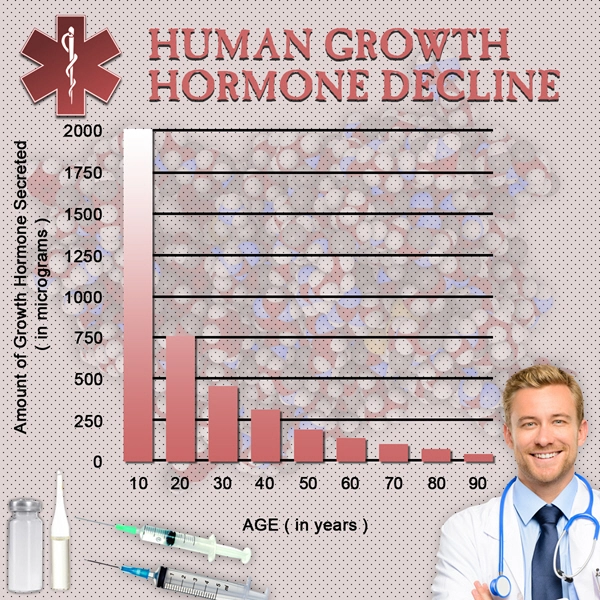
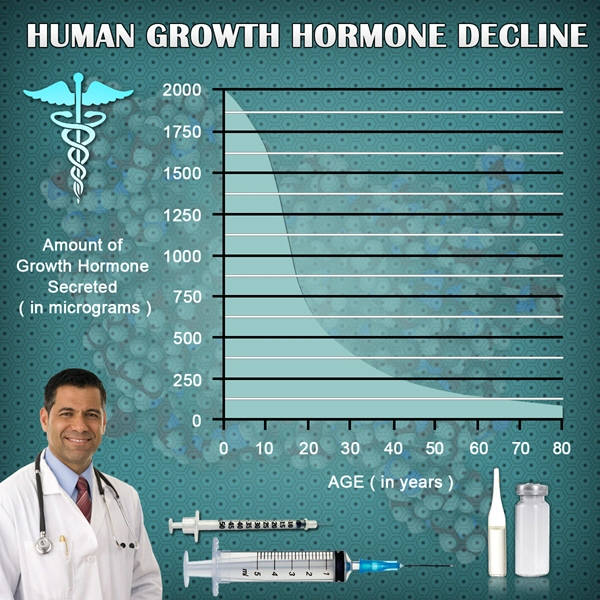
List of USA state clinics - click a flag below for blood testing clinics.
Word Count: 5727


















































